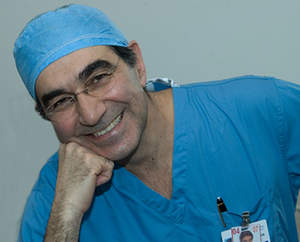NEW YORK, NY--(Marketwire - September 23, 2009) -
| Highlighted Links |
Advanced Urological Care |
American Medical Systems |
The claim is based on a study of more than 40,000 patients implanted with the AMS 700 devices, which showed a significant reduction of first-time and revision infection rates. The reduction also held true for diabetic patients, who have an increased risk of infection due to their condition. The AMS 700 with INHIBIZONE®, is the "gold standard" for innovative penile implant devices and the only antibiotic-impregnated penile prosthesis on the market.
Dr. Eid has been a long-time supporter of AMS products, such as the Advance™ Male Bladder Sling and Artificial Urinary Sphincter (AUS). "With the 'No-Touch' technique, this new innovation will give patients a higher sense of confidence that their implant will not result in an infection," says Eid, a Clinical Associate Professor of Urology at Cornell University and Medical Director of Advanced Urological Care in New York City. Eid developed his "No-Touch" penile implant surgery technique after years of testing. The technique reduces penile implant infection rates when using both the AMS INHIBIZONE®, coated and non antibiotic coated Coloplast implants to less than 1% by eliminating infection through prevention of exposure to bacteria and normal skin flora.
However, with the AMS 700 with INHIBIZONE®, the infection rates for the "No-Touch" technique are now at zero percent, which have been proven in the last 504 consecutive cases performed by Dr. Eid since January 1st, 2005. Eid, a world-renowned surgeon and a foremost specialist in urological prosthetic reconstruction, has performed more internal penile prosthesis surgeries than anyone in the world, over 300 per year. Dr. Eid has performed over 3,000 implant surgeries over the last 20 years. His practice, Advanced Urological Care, is entirely dedicated to erectile dysfunction and urinary incontinence treatment.
"Our confidence in AMS products and our 'No-Touch' technique will speak
volumes to our patients to assure them that they are in the best of care
with us," states Dr. Eid.


 Digg this
Digg this Bookmark with del.icio.us
Bookmark with del.icio.us Add to Newsvine
Add to Newsvine


